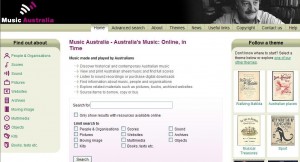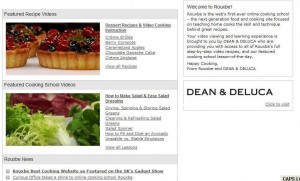An article worth reading that appears in today’s Melbourne Age as well as the UK’s Guardian.
Beyond the happy ending
JACKIE KEMP
September 7, 2009
One day recently I heard an unearthly wailing coming from my 11-year-old son’s room. It was like no sound I’d ever heard from him before. He doesn’t normally cry at television or films but, curled up alone in his bed reading, when the fantasy character he identified with met a grim end, vanquished by the forces of darkness, he found it absolutely devastating.
Having perhaps antiquated expectations of children’s fiction, I flicked through the book, sure he must have misinterpreted the ending. I was wrong.
A friend complained to her daughter’s school after finding her 10-year-old in shuddering hysterics over a book about the Holocaust. “It was so graphic about the horror of the train journey to the death camps: people were dying and being shoved out of the train. It ended with the main character going into the gas chambers.
“My daughter didn’t know anything about the Second World War or the Holocaust. She was completely unprepared — she was given it because it was at the reading level she was at. The teacher hadn’t read it.”
Author Anne Fine recently mused at the Edinburgh Book Festival about the effects of the bleakness of some of today’s children’s books on vulnerable youngsters. This provoked a rash of sneering from the literati, and painful — and clearly unjust — comparisons between the former children’s laureate and Enid Blyton. But Fine obviously touched on something of interest to many when she asked whether realism “may have gone too far in children’s literature”.
Alison Waller, senior lecturer at the National Centre for Research in Children’s Literature (NCRCL) at Roehampton University in south-west London, says: “As a children’s writer, Anne Fine has a very strong sense of a pastoral obligation to her readers. You can see that in her work. But many writers for children and young people don’t feel like that. They believe they should just write what they want and leave it up to the reader to interpret.”
Patrick Ness, author of The Knife of Never Letting Go, a violent, dystopian fantasy, believes that fiction should reflect reality and that “good doesn’t always triumph”.
He says: “When I was young, there was still the compulsion for books for the young to teach an ethical and moral lesson. The bully always got his comeuppance. I knew that was shit. That wasn’t what happened in my school.
“I think that if you tell the truth about the bullies getting away with it and the violence and the tough realities of life, then when you tell the truth about love and optimism, they will take it more seriously.”
He feels that, despite the violence and torture contained in the text, a book like his could still be useful in the classroom. “A class of teenagers can discuss when the character chooses right and when he chooses wrong. There is a time when he shouldn’t use the knife and he does, and there is a time when you are rooting for him to use it but he doesn’t, and the class can talk about how it can be right to feel that.”
Teacher Ann Young insists there is a place for dark stories in the classroom. “I just read a book called Nightjohn, by Gary Paulsen, about slavery, to a class of boys who said they weren’t interested in reading. They are also learning about the reality of slavery and it really held their attention.
“There are some books the children read that do make our school librarian roll her eyes: Before I Die is apparently about a teenager who does lots of things like have sex with various people because she knows she is about to die. But teenagers do seem to be drawn to the dark side. I think it is just part of exploring what is inside them.”
Sheila Rodger, head of English at an Edinburgh school, says: “I am amazed by the nitty-gritty reality of some of the books the children choose to read. I think perhaps there is an absence of metaphor. They can be a bit obvious and so the imagination isn’t stimulated.”
Children’s writer and teacher Bernard Beckett says using modern literature is a key tool for getting children to understand and explore the world around them. “I am in absolute awe of the moral power of literature. The stories we construe are crucial to our expectation of the world.”
His recent book, Genesis, uses a child in a future, utopian society taking an exam about the past to explore the theory of evolution. Beckett says: “The trouble with the ethical debate around children’s literature is that it tends to be hijacked by a very select group of social conservatives whose morality I find abhorrent; a morality that, for instance, has persecuted homosexuals.”
But he does have concerns about books for children that portray a depressing world view. “I am an irredeemable optimist. One, I think it is a damn fine way to live your life. And, most of the time, drivers do stay on their own side of the road. Most people don’t kill you.
“Two, more energy comes from optimism. That is a stronger energy than the one that comes from saying everything is terrible and we are all going to die.”
Kim Reynolds, director of the NCRCL, says there is a fashion for dark fantasy books, which seem to appeal to teenagers. “Since the ’50s, when the Catcher in the Rye came out, we have had teenage fiction under the nought to 16 umbrella, and what teenagers can cope with is different from what younger children can,” she points out.
“Nihilism seems to appeal to some teenagers. It seems to talk to the inner turmoil they are experiencing and in some ways it corresponds to their emotional stage.”
She voices some reservations about books like Ness’s. “It has a really hopeless and brutal ending. You aren’t really left with any hope at all. It is quite nihilistic. And you aren’t prepared for it because it is a children’s book and it doesn’t signal that it isn’t going to have a happy ending.”
Of another fantasy book, Tender Morselsby Margo Lanagan, Reynolds says: “I really question whether that should be regarded as a book for children. It doesn’t offer very much in the way of hope at all.”
Perhaps parents and teachers can no longer afford to assume that everything in the garden is lovely — or that everything in the children’s department of the bookshop or library is. Like the restricted section in the Hogwarts library, some of these books may bite. GUARDIAN



